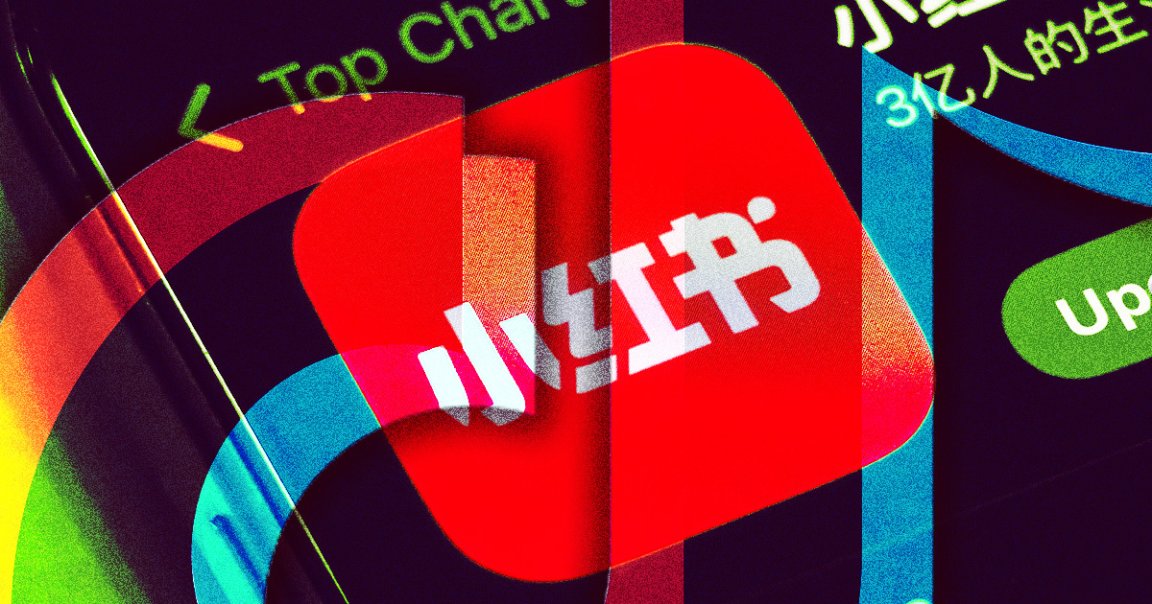
Erstwhile TikTok users are flocking en masse to a Chinese social media app called RedNote ahead of a Supreme Court ruling which could force a sale or total ban of the beloved short-form video app. And it’s not a fringe thing; RedNote has quickly hit #1 on Apple and Android app stores, with the influx of users showing no signs of slowing.
The app, known in China as Xiaohongshu or “xhs” for short, sports an interface not dissimilar from TikTok, but is functionally closer to a hybrid of Pinterest and Instagram. Users trade recipes in static posts, comment on fit check reels, and use the AI-free search function to answer everyday questions. (US tech companies might learn a thing or two from that example.)
On a certain level, the exodus is arguably a mass denunciation of the busted American social media industry. On another, though, it might just be that RedNote has a compelling product: as one Chinese-English user summed it up on X-formerly-Twitter: “it’s pretty much a replacement for search engine and insanely useful for everything”.
Many of the 170 million American TikTok users flocking to the Chinese app will quickly notice the dominance of mandarin text, or hànzì. That hasn’t stopped tens of thousands of xhs’ers from rallying around the tag “TikTok Refugee,” which is quickly becoming a first-stop for users to reconnect with American content creators rebuilding their empires beyond the confines of Silicon Valley.
Nor has the app’s translated name — “little red book” — dissuaded Americans from signing on with fervor (the app’s founder claims to have named xhs after the color palette of Stanford, where he received his MBA, as opposed to the book of quotations by People’s Republic of China founder Mao Zedong).
As the term “refugee” implies, American TikTok users are stumbling into a digital environment already populated by a vast and foreign culture. Prior to the “Great Digital Migration,” RedNote was home to roughly 300 million monthly users, the majority of whom are young, urban women, according to the BBC.
So far, China’s Pinterest girlies have been gracious hosts. Many high-profile Chinese accounts have begun adding English subtitles to videos, pinning reels with titles like “How TikTok Refugees Can fit in RedNote” to the top of their profiles. Some are teaching bite-sized lessons in hànzì-English shorthand, while others spin elocution lessons for their curious American counterparts.
Though the internet has often been heralded as a tool for information dissemination and western progressivism — remember the Arab Spring? — the reality isn’t so idealistic. Case in point, China tends to ban American apps that don’t comply with its regulatory standards, and the US has long used the internet as a tool to maintain global hegemony. So it’s interesting to see Western and Chinese users interacting directly, a turn with little precedence in the contemporary world.
It’s all the more fascinating that the tensions of state which usually keep the two societies separate has, in this case, driven them right into each other’s arms. In practice, posts on RedNote suggest that American users are uniting around the app out of spite for the US government, or at least the parts of it that might ban the distribution of TikTok.
“I surrender all my data to China,” said one user as he knelt, offering a binder full of papers. “Fuck you US government. Fuck. You.”
Chinese users were quick to catch onto this American angst, gleefully inviting westerners to reconnect with their now out-of-the-job “Chinese spy” assigned to monitor them over TikTok. Time will tell if this is a true Berlin-wall moment, or if more government crackdowns are soon to follow.
More on social media: Facebook Caught Hosting AI-Powered Hitler